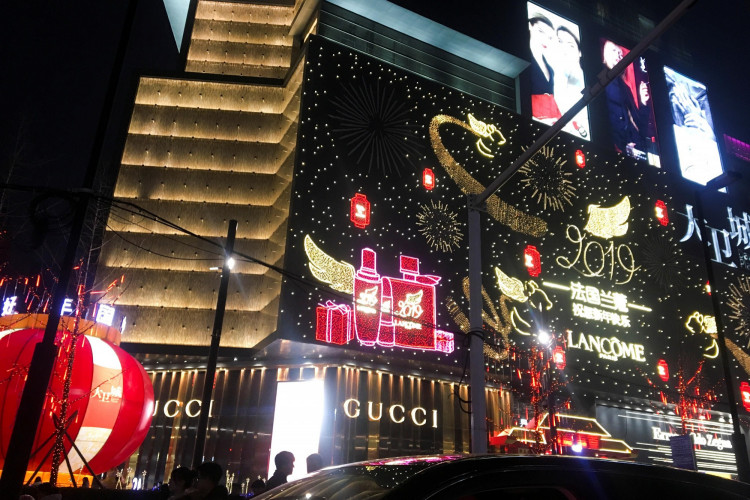The massive Double Five shopping festival launched in Shanghai, which launched on Monday, managed to rake in more than 15.6 billion or $2.2 billion in sales during its first 24 hours. The campaign was launched by the government in cooperation with domestic retailers to spur consumer spending and to revitalize the country's economy.
According to the local media reports, sales through various offline and online channels of participating companies surged to more than 2.3 billion yuan in the first four hours after the festival was launched. Sales crossed the 10 billion yuan mark after just 20 hours.
Companies such as Alibaba and JD offered discounts and coupons through their offline and online outlets, encouraging buyers who have been crammed inside their homes for months to spend their money. Alibaba reported that its online-to-offline supermarket chain Freshippo was swamped with orders, essentially wiping out stocks during the first few days of the sales campaign.
The Shanghai municipal government previously stated that it came up with the campaign to boost consumer confidence and to satisfy the pent-up consumer demand, which has been lying dormant since the beginning of the coronavirus outbreak. Officials had also mentioned during a press conference that the measure is meant to support the recovery of local businesses.
Consumer spending accounted for about 57.8 percent of China's total gross domestic production (GDP) last year. Due to the spread of the disease earlier in the year, consumer spending has declined to new lows. After curbing the spread of the disease, government agencies are now focusing on bolstering consumer spending through the implementation of new measures and stimulus packages.
As early as March, local government in cities such as Nanjing and Hangzhou had started handing out coupons and vouchers worth millions of yuan to residents. The coupons were meant to encourage people to go out and spend on offline products and services such as restaurants and malls after the lifting of the restrictions.
While online retailers had managed to evade most of the economic effects of the pandemic, offline retailers were not spared. Shopping malls, restaurants, and retail outlets were hit particularly hard during the months of continued shelter-in-place orders and lockdowns.
Online retailers such as Alibaba had reported a massive surge in activity on its platforms as merchants attempted to take advantage of trends such as livestreaming selling during the pandemic. The company stated that livestreaming on its Taobao Shopping platform increased by more than eight times in January and February.





